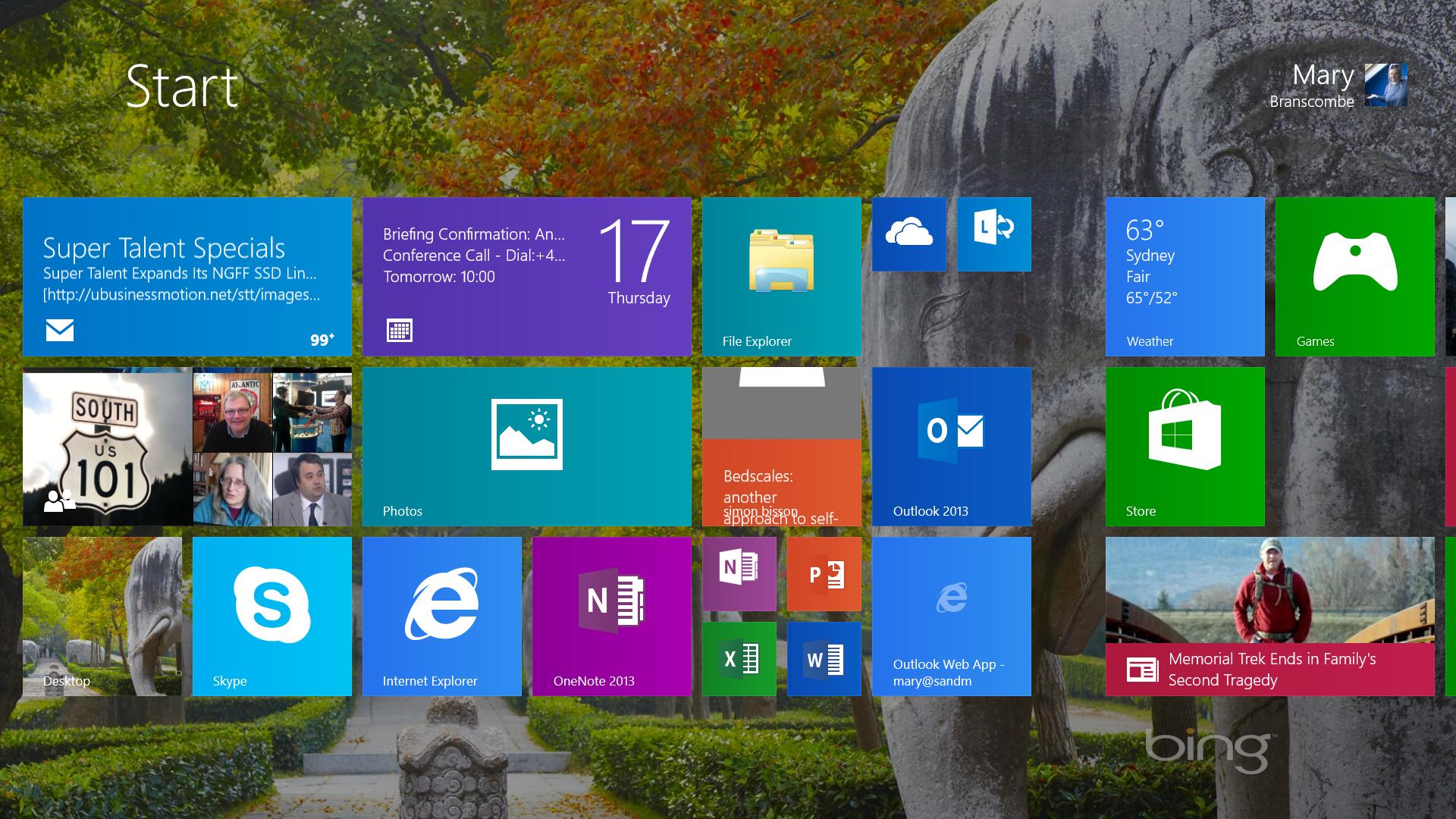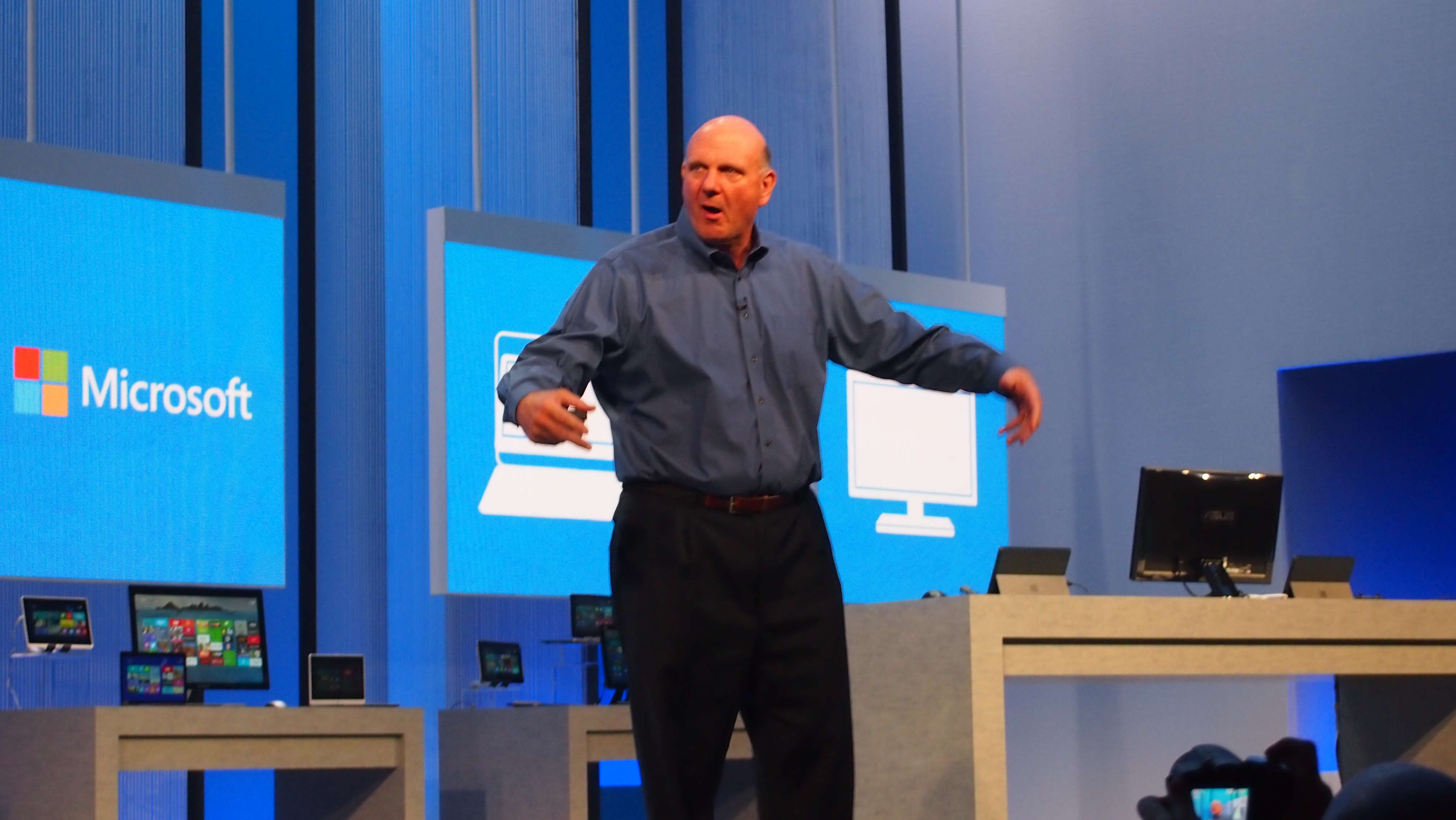The future of Windows: where will Microsoft take its OS next?
The next step is about devices and services rather than features

Various leaks and rumours about Update 1 to Windows 8.1 have a lot of people wondering what's happening to Windows.
Is the vision being watered down in a design-by-committee response to complaints and confusion?
Is 8.1 Update 1 actually akin to Windows 8.2.
Despite new CEO Satya Nadella's commitment to create what both businesses and consumers want instead of focussing on just one or the other, and despite Microsoft devices contributing 14% of the company's revenue in the last set of figures, there are still calls for Microsoft to concentrate on existing PC users who haven't got touchscreens yet.
Until we hear about Microsoft's plans officially, which we're expecting will be at the Build conference in April along with an early version of Update 1 for people to try out (and at least the announcement of Windows Phone 8.1), it's important to look at the leaks and rumours in terms of what we do know about Microsoft's strategy.
Remember, that strategy is now to be a devices and services company, not a platform company. Windows is still important, but it's not there to sell Windows; it's there to sell devices and to make services work well.
The next version of Windows needs to be good so you carry on paying for the Office subscription that makes the next version of the Office apps run on it, instead of making do with Office Online (as the Office Web Apps now seem to be called). The next version of Windows needs to showcase Bing search and other services, take advantage of OneDrive and be a great platform for the new Power BI big data analysis service.

Think of the 'high value activities' that Ballmer and Gates and now Nadella have talked about: Making decisions (presumably with Bing) and getting tasks done (presumably with the Bing apps). Making interactive documents with Office and other apps that include multimedia and logic.
Sign up to the TechRadar Pro newsletter to get all the top news, opinion, features and guidance your business needs to succeed!
When Ballmer said in the reorg memo "these documents will be readable from a browser, but the experience will be infinitely better if read, annotated or presented with our tools," he could have been describing the new Power BI service with which you create reports in Excel, interact with the data in a Windows 8 app and just view them if you're only in the browser.
That's the services side, and we expect to see Windows having more pieces for that in the 2015 update, codenamed Threshold, which covers Xbox, Windows and Windows Phone.
Those won't necessarily all be delivered at the same time, especially the business version of Windows. "The consumer really is ready for things to be upgraded on their own," Terry Myerson pointed out at the Credit Suisse conference last year, but in business the IT team wants control.
"There may be different cadences, or different ways in which we talk to those two customers. And so 8.1 - there's 8.1 and there's 8.1 Pro, and they both came at the same time, it's not clear to me that's the right way to serve the consumer market. It may be the right way to continue serving the enterprise market."
A more Mobile Windows
On the devices side, future versions of Windows need to make sense on tablets, and maybe on phablets and phones as well. Last year, Julie Larson-Green famously said that Microsoft might reduce the number of versions of Windows, which most people expect to be a merger of Windows Phone and Windows RT. Even with ex-phone chief Terry Myerson running Windows (which is actually called the Operating Systems Group and tends to be referred to as the Core OS team when people like Nadella are talking about it), that doesn't mean killing Windows RT.
As Larson-Green put it at the time, "we do think there's a world where there is a more mobile operating system that doesn't have the risks to battery life, or the risks to security [of full Windows]". That needs to be more than Windows Phone, and with the long-running project to create a single Windows Store and make Windows Phone apps run on Windows RT and 8, and vice versa, a hybrid of the two makes sense for the tablet and phablet market.
Mary (Twitter, Google+, website) started her career at Future Publishing, saw the AOL meltdown first hand the first time around when she ran the AOL UK computing channel, and she's been a freelance tech writer for over a decade. She's used every version of Windows and Office released, and every smartphone too, but she's still looking for the perfect tablet. Yes, she really does have USB earrings.